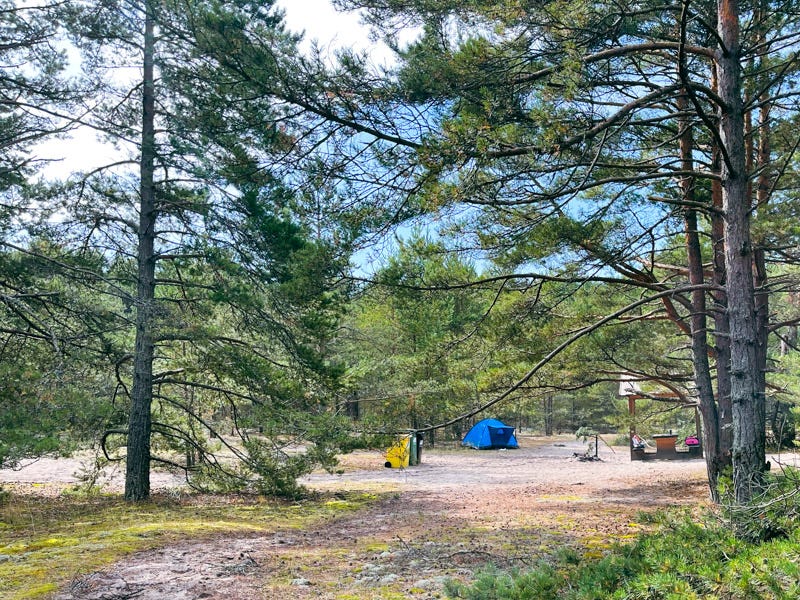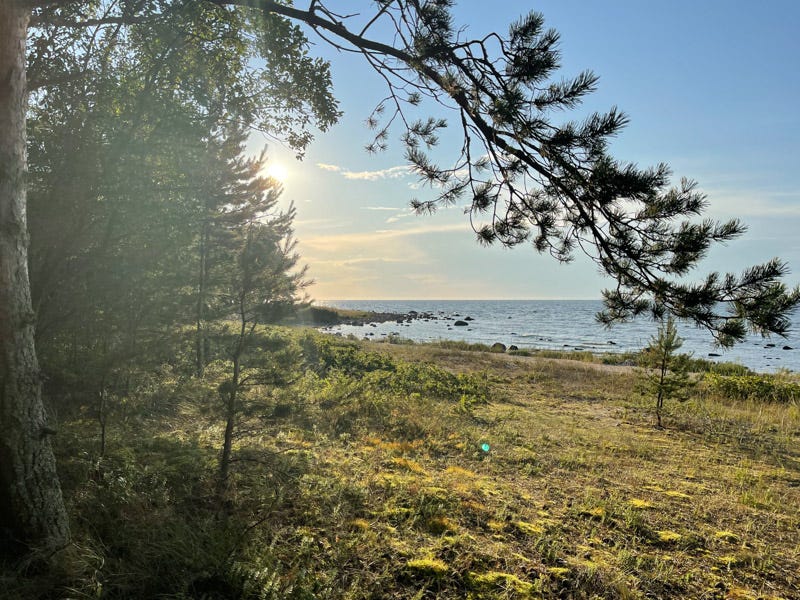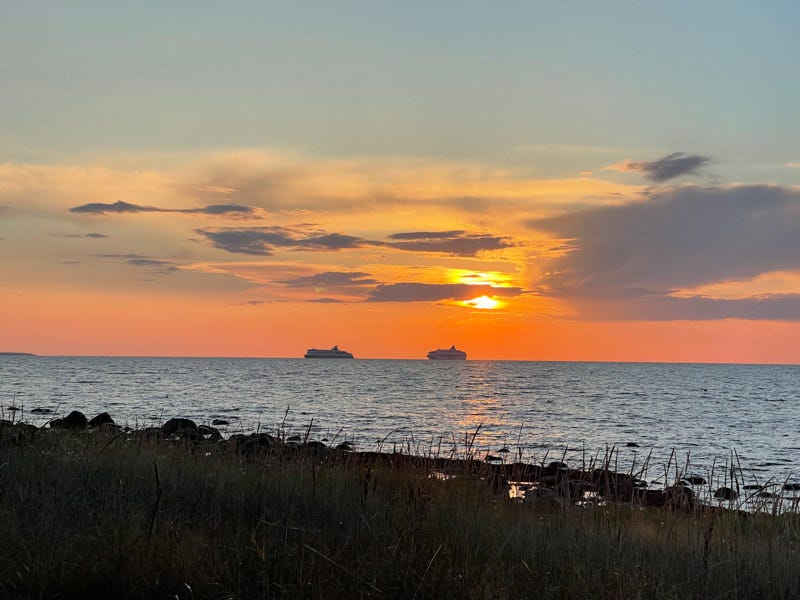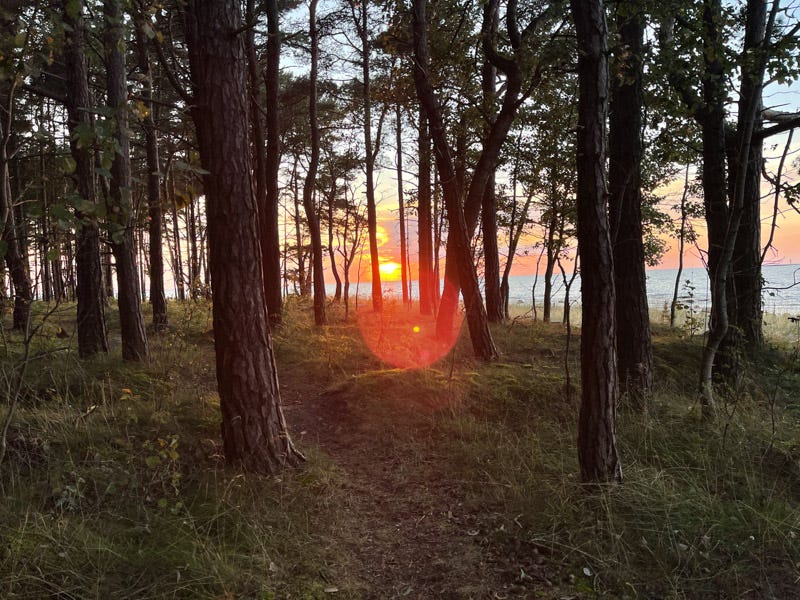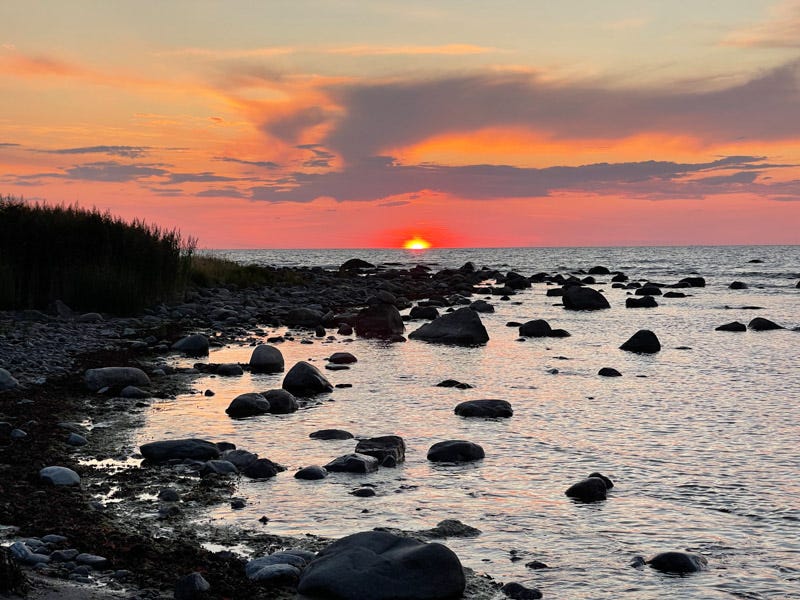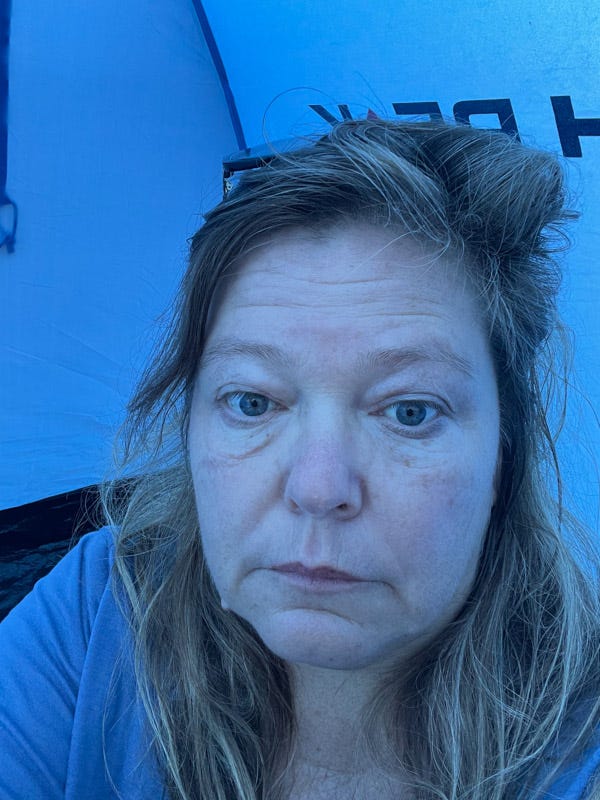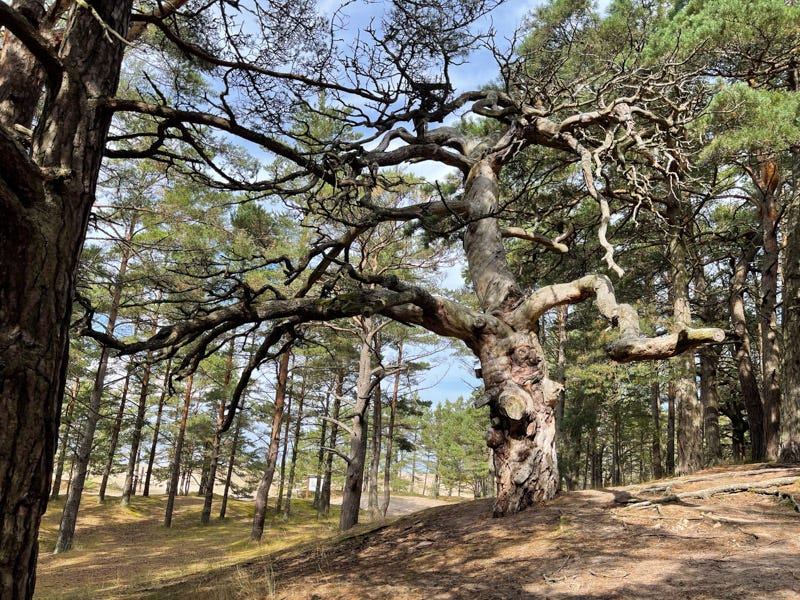This is part two of a free series for all subscribers to my newsletter. You can read part one here: Six Words of Russian
Although I joke about the lack of luxury when camping, lugging much too much to the camp site including a blow-up mattress and a hand-pump for espresso, there’s actually only one aspect that I don’t like.
I’m afraid of the dark.
It’s such a stupid thing to admit to because yes, sometimes the dark is legitimately scary. It’s reasonable to be frightened while walking through a dark alleyway alone. And it’s not really a phobia, in that it doesn’t impact my day to day life. Turning the lights off for bed can make me feel a bit nervous if I’m alone but I can deal with it. I’m self-sufficient and competent; I don’t need no damn nightlight.
My belligerence is in itself a symptom of the problem. The truth is that my brain, quite rational and reasonable about risk during daylight hours, seems to completely freak out once the light has gone from the sky, convinced that something horrible is lying in wait for me, just out of sight. And the reason that I don’t need a nightlight is because everyone knows that monsters can’t get to you if you stay under the covers.
During the day, there had been sixty people on the island of Aegna but the evening ferry had taken forty-four of them back to Tallinn. I was the only person at the North Beach campsite.
I opened my second cold beer. The waves crashed gently on the rocky shore just out of sight of my picnic table. My campfire burned brightly through the cut logs left in a pile, its performance enhanced by packets of flammable chemicals and dry birch bark. The last of the butterflies skitted past. A flock of black birds flew along the horizon. My tent looked stable and secure among the twisted pines. I threw another log on the fire and wished that I had bought a third beer, even at four euros a can.
Pine needles scritched against the fabric of my tent. I’d planned to visit the labyrinth at sunset, having read about the tradition of following the pattern bare-footed at dawn or dusk. However, now that the sun was sinking, I realised that following that tradition would involve me returning through the forest in the dark. I would probably wake before dawn anyway.
The crunching of footsteps interrupted my thoughts. Two broad-shouldered men appeared out of the long shadows of the pine and then stopped at the dry toilet and refitted a missing board. I concluded that they were unlikely to be rapists or murderers and turned towards them as they approached.
“Tere õhtust,” said the taller one, Good evening, in that confident voice used by law enforcement everywhere
“Tere õhtust,” I said.
They stopped, looked around, said something.
“I don’t speak Estonian,” I said in Estonian.
“Kas sa räägid vene keelt?” Do you speak Russian?
“Vodka,” I said. He did not seem impressed. I tried to make up for it. “Kas te räägite inglise keelt? Või saksa keelt?”Do you speak English? Or German?
“Ei,” he said, no. A pause that went on a moment too long.
“You are speaking Estonian,” he said, in Estonian.
Which, ok, yes. But we had exhausted my conversational ability. I shook my head no.
He persevered. “Is that your tent?”
I stared at him. I know I don’t look much like a mountain woman but we were the only ones on the campsite and there was only one tent. Who else could it belong to? And if it was not my tent, where did they think I was going to stay? “Minu,” I said carefully, mine.
They both looked at the tent and then again at me, as if there were more questions they wanted to ask and then thought better of it. The one with a beard said something long and complicated.
“I don’t understand,” I said in Estonian.
“The fire,” the first one said in hesitant English, and trailed to a stop.
I grew up in wildfire country and so although it seemed like the risk of my fire escaping the pit on this rainy Baltic island was minimal, I was pretty sure I knew what he was trying to say.
“I’ll make sure the fire is out,” I said in English, pointing at the red-painted bucket hanging from the roof of the picnic table.
He smiled at me then, and nodded. With that, perhaps, I had proven my ability to spend the night on their island without causing a problem. They spoke to each other in low voices as they carried on across the clearing, disappearing into the woods.
I strolled along the beach to take photographs of the sunset. Once again it felt like I was alone on the whole island. Certainly this corner of it belonged to me and I was already feeling quite proprietorial about it.
A flock of gulls flying to a further out island were silhouetted against the horizon as the sun slipped below it. I began clearing up my picnic table, storing everything in my hot pink backpack so it would be protected from the dusty wind and the wood ants. As the light faded out of the sky, a cold dread filled me. Here I was in the forest. All alone. In the dark.
I’ve been camping three times before. Twice at the Estonian science fiction convention, where the singing and laughter carried on until sunrise, so there was never a moment when I felt alone in the dark. The third time was at a beach near our home on a windy and stormy night. There were other campers nearby and the buffeting wind drowned out all other noises. Other than a tight-lipped refusal to go for a pee until the sun rose, I weathered the night relatively well.
I placed my bag in the middle of the picnic table and set up my small camera for time lapse photography. It had enough power to take a photograph every two minutes for four hours, so I attached its magnet to the fire bucket and pointed it at my tent. It might be interesting to see how the light changed in the short nights of the summer.
The shadows of the forest seemed threatening and cold. After ensuring my fire was out, I retreated into my tent, ready to shut out the world and get some sleep.
I thought once I was inside, I would feel protected, wrapped up in the safety of the tent, and I would be fine.
I was wrong.
The wind whispered through the trees in an ominous hiss. An engine throbbed in the distance, seemingly getting louder and closer. The waves rippling along the shore sounded like voices. I cowered and flinched at every new sound, convinced that someone or something was out there.
I heard the rumbling of an engine coming slowly closer and closer, a motor boat landing on the beach. Quiet voices in the wind, murmured words becoming heated, drug dealers meeting on the north coast of the small island, twitching hands on greasy black assault weapons, ready to gun down the slightest hint of betrayal, like a young woman alone in a campsite that they believed to be deserted. If they discovered me there, listening in the darkness, they would have to shoot me down rather than risk my catching sight their crimes. Leave no witnesses to tell the tale. I turned off my flashlight and unzipped the tent to peer out into the darkness at the Cuban drug runners that had landed on my northern Estonian beach. There was no one out there. The rumbling of an engine still sounded, yes, but it wasn’t a motor boat and it wasn’t moving: more likely a generator somewhere on the island providing power now that the sun was gone. The voices went back to being the rippling of water on the rocks. I zipped the tent back up and left the flashlight off.
Something scraped the edge of my tent, almost certainly the claws of a hungry bear, ready to rip the thin fabric of the tent to shreds. I hurled myself against the opposite side of the tent, the blue frame rocking precariously. A moment later, it scraped again, and a third time: the pine tree creaking back and forth in the wind as the lowest branch rubbed against my tent.
Again I unzipped the tent and looked out, hoping to reassure myself that I was, in truth, alone in the dark. A speck of light lit up before me: a flashlight in the distance. Someone was here heading straight towards me! It blinked out and I realised that it was my time-lapse camera, taking a photograph of my pale face peering out of the tent. At least if a crazed killer stumbled onto the campsite and dismembered me, leaving only a bloodstained tent behind, the police would have a record that I had been there. With that comforting thought in mind, I fell into an uneasy doze.
Finally the sky began to lighten at the edges and my fears began to recede. I dismissed my plans to walk along the labyrinth at dawn. The folklore of the island claimed that you could ask for a wish to be granted. The only thing I would wish for right now was a few hours of sleep: better to just take them. When I woke again, the sun was high in the sky.
I unzipped my tent and took a long look around the empty campsite. There was no sign of hungry bears or Cuban drug runners. Against the brilliant blue skies, the tall pines were beautiful and distinguished, not twisted and frightening. The waves tumbled gently onto the stones in a soothing manner. A friendly crow cawed, wishing me a good morning.
I got out and stretched, squinting against the sunlight. The picnic table glinted back at me. Silken threads criss-crossed the wood: a tiny horde of spiders had arrived in the night, drifting quietly from roof to table, leaving thin strands of silk quivering in the morning breeze. A fly buzzed past me, intent on the delicious crumbs I’d abandoned on the wooden table, and flew straight between the strands. So not very competent spiders, I thought.
That’s when I realised that my backpack was gone.
Part Three:




